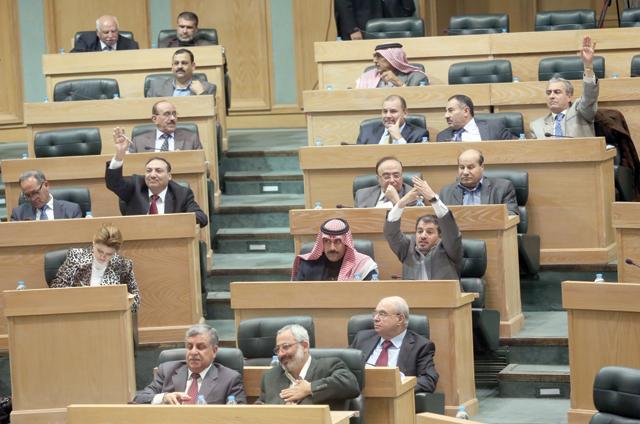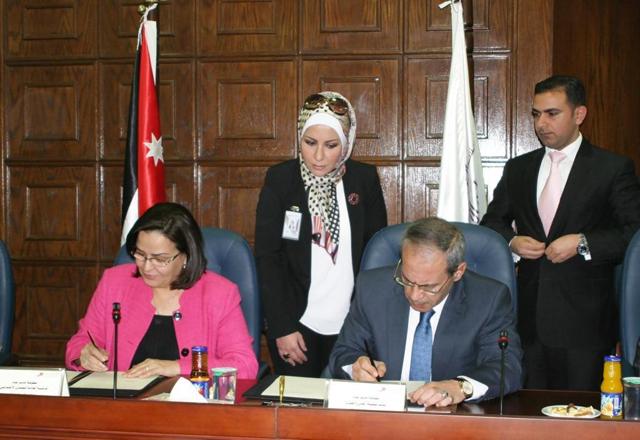AMMAN — Jordan celebrates His Majesty King Abdullah’s 52nd birthday on Thursday.
Born in Amman on January 30, 1962, King Abdullah is the eldest son of His Majesty the late King Hussein and HRH Princess Muna.
A Royal Decree was issued on January 24, 1999 naming him Crown Prince.
The King began his primary education at the Islamic Educational College in Amman, and later attended St. Edmund’s School in Surrey, England.
For his secondary education, he attended Eaglebrook School and Deerfield Academy in the US.
King Abdullah joined the Royal Military Academy at Sandhurst in the United Kingdom in 1980 and was commissioned as a second lieutenant in 1981.
He joined the Jordan Armed Forces in 1982 as a first lieutenant, moving up the ranks in the military. He also served with the Royal Jordanian Air Force Anti-Tank Wing where he received his wings as well as his qualification as a Cobra attack pilot.
In 1987, the King joined the foreign service faculty of Georgetown University in Washington, DC, and completed an advanced research and study programme in international affairs along with a master’s programme in foreign service affairs.
The King rejoined the military in 1989 and continued to be promoted, becoming commander of the Royal Jordanian Special Forces and Special Operations in 1994 with the rank of brigadier general.
In 1996, the King reorganised the Special Forces to comprise selected units, and was promoted to the rank of major general in 1998.
King Abdullah married Her Majesty Queen Rania on June 10, 1993 and they have four children: Their Royal Highnesses Crown Prince Hussein, Princess Iman, Princess Salma and Prince Hashem.
Since his accession to the Throne in February 1999, King Abdullah has focused on enhancing the capabilities of Jordanians, entrenching the concept of respect and the dignity of citizens, ensuring the sovereignty of the law, realising equality, justice and equal opportunities for all, in addition to focusing on pushing the development process forward and highlighting the effective role of Jordan in the international arena.
The Kingdom, under His Majesty’s rule, took the initiative to implement political and economic reforms, including constitutional amendments and a new Elections Law, under which the latest parliamentary elections were held on January 23, 2013, triggering the parliamentary government experience that is expected to mature over the coming parliamentary cycles.
The September 2011 constitutional amendments necessitated the enactment of several new laws, including those that mandated the establishment of the Independent Elections Commission and the Constitutional Court.
To trigger public debate over the political future of the country, King Abdullah authored and published four discussion papers on Jordan’s reforms and democratic progress: “Our Journey to Forge our Path Towards Democracy”, “Making Our Democratic System Work for all Jordanians”, “Each Playing our Path in New Democracy”, and “Towards Democratic Empowerment and Active Citizenship”.
In his first discussion paper, which was published around a month prior to last year’s parliamentary elections, the Monarch called for full citizen engagement, not only in discussions with parliamentary candidates, but among themselves and on every issue of public and national interest.
Made public a week before the parliamentary polls, the King’s second paper addressed the mechanisms of forming the government.
King Abdullah’s third discussion paper called on political parties to assist in the development and future sustainability of an all-encompassing national perspective in Jordan’s political life.
In the fourth discussion paper, which was released in June last year and coincided with the launch of “Demoqrati”, the Democracy Empowerment Programme, the King laid out his vision for the future of the country, and tackled how to stimulate political participation and active citizenship.
The Kingdom has had to face new challenges with the influx of Syrian refugees and the disruption of Egyptian gas supplies, which represented a vital source of energy.
The country also had to deal with the global economic crisis, which impacted the national economy, accompanied by public calls for expediting the reform drive.
In an interview last year with China’s Xinhua News Agency, the King said “Jordan’s reform approach is based on the principle of continuous evolution.”
“The ultimate goal is clear — to reach an advanced parliamentary government system, where platform-based political parties, that enjoy the majority, form the government, while the parliamentary minority serves as shadow government,” he said
“As for the evolution of the role of the monarchy, I have already made it clear that it will evolve in parallel with the political changes that we seek — and seek sincerely and diligently — whereby the role of the monarchy is enrooted as guarantor of pluralism and democracy, protector of the separation of powers and facilitator to overcome standoffs between parliaments and governments.”




















